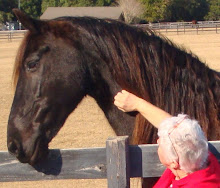 You can't look inside the book from here because the image came from Amazon.com where you can not only look inside but also buy the book.
You can't look inside the book from here because the image came from Amazon.com where you can not only look inside but also buy the book.I was born and grew up in northern Mississippi, about a hundred miles from Jackson where this novel is set. We did not have a maid, but we did have a black woman who came in to help Mom with the laundry occasionally - and I think to do my diapers because Mom was not well when I was a baby in the mid to late 1940s. She was much loved by our family. As we went past her house on the way into town, I would often ask if we could stop and visit her. We only stopped once.
No one that I knew had a regular maid though they did exist in my little town. I don't remember that they wore uniforms, but by the 1960s I don't believe anyone except the wealthiest people had maids in our part of the country. Mom's boss had a maid until she died in the late 1990s - a wonderful woman who cooked and served a brunch before my wedding (the boss' gift to me).
I was blessed with Caroline, a black woman whose husband farmed a small acreage down the turn row from us. I visited her often in the summer. She cooked turtle soup and the best biscuits in the world. She never let me eat at the table with her and her husband. I had to eat on a white cloth over the sewing machine in the living room. I always begged to be at her table because I loved her dearly. Perhaps it was Caroline who taught me how to make tiny stitches for mending or how to season food by smelling what was needed or how to get that foot motion just right on the treadle sewing machine.
I am a white woman now in my mid 60s. I was a white child in a poor family. I cannot imagine the conversations of the white women in this book. They are painful to me. Although I've read only the first 100 pages and the last few pages, I can see the plot developing. The same hoity-toity talk continues throughout even if some honesty and devotion does develop.
I'm not sure I can handle the pain of those conversations and the duplicity of both white and black women. Race, money and position were powerful then and now. Empowerment is situational. Mae Mo, the child in the book, may be told over and over that she is good and kind and such, but she will discover that power can make you feel hated and worthless at times - no matter how much you tell yourself differently. Race, money and position still rule the world.
As my previous post mentions: sometimes I'd rather live in blissful ignorance and forgetfulness.

2 comments:
We too had a maid when I was wee. The first one was Clarissa then we had Naomi. I still remember where one lived. They taught me all sorts of stuff like fear of thunderstorms. Great gals tho.
Recently I was reading some other friends online talking about this book, and it made all my hackles go up. But, that just leads me to wondering if it was written from a point of understanding of privilege, of understanding & respecting the generations of people who felt that they were robbed of their mothers in their households, etc.! Maybe I am too suspicious.
Who wrote it? And, by that I mean, female? white? Southern? age?
Post a Comment